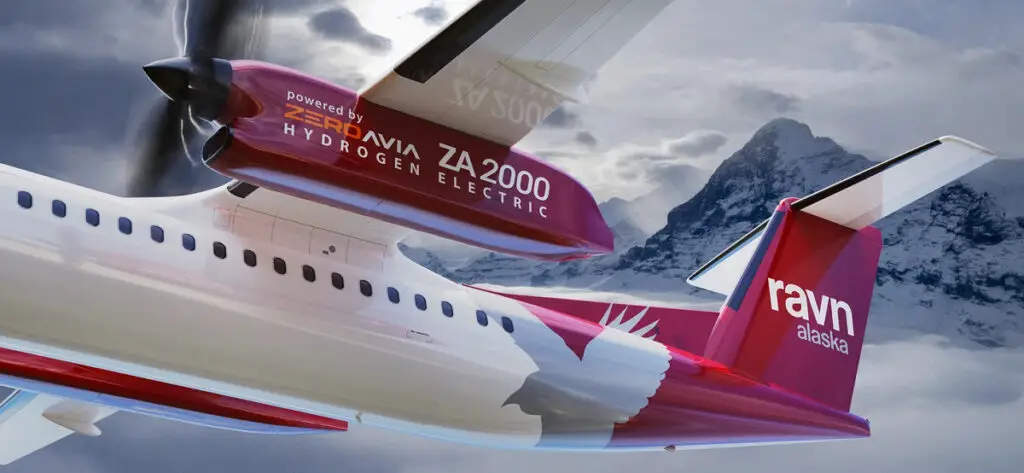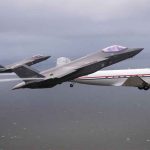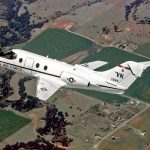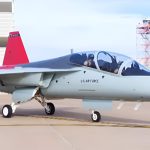ZeroAvia, a developer of low-emission solutions for commercial aviation, announced yesterday the signing of a memorandum of understanding with regional airline Ravn Alaska. Under the agreement, the operator confirmed an order for thirty ZA2000 engines, developed by ZeroAvia, to equip its fleet of De Havilland Dash-8s.
Currently, the airline operates a fleet of Dash 8 Q100s and Q300s and provides air service between Alaskan communities. The characteristics of the state and the airline’s network motivate the adoption of this type of technology. Alaska’s size and sparse population density, coupled with the remote and inaccessible location of many towns, make air transport key to connectivity in the territory.
In addition, while still heavily dependent on fossil fuels, Alaska has great potential for the development of renewable energy resources. In particular, hydroelectric power generation, which favours the production of green hydrogen.
Thus, the combination of high dependence on air transport and the availability of more sustainable resources is conducive to this type of initiative.
«We want to be at the forefront of adopting zero-emission aviation once FAA-certified technologies come to market», said Rob McKinney, CEO of Ravn Alaska.
For his part, Val Miftakhov, founder and CEO of ZeroAvia, said that «Alaska represents the challenge facing the aviation industry». He noted that air connectivity is critical for Alaskans, but that the impact of climate change is notorious in the region. «With its ample renewable energy supply and network of airfields, the state is the perfect place for some of the world’s earliest hydrogen-electric, zero-emission routes», he concluded.
ZeroAvia’s ZA2000 engine
The ZA2000 is a 2 to 5 megawatt modular propulsion engine designed to equip turboprop aircraft with 40 to 80 seats. It is scheduled to enter the market in 2026. Another powerplant, called the ZA2000RJ, will expand this technology and will be available later this decade, according to the company.
In addition, ZeroAvia is currently developing a project to certify its 600-kilowatt ZA600 engine for ten- to 20-seat aircraft. The company expects it to be available in 2024.
See also: ZeroAvia and MONTE strike deal for 100 hydrogen-electric powertrains














